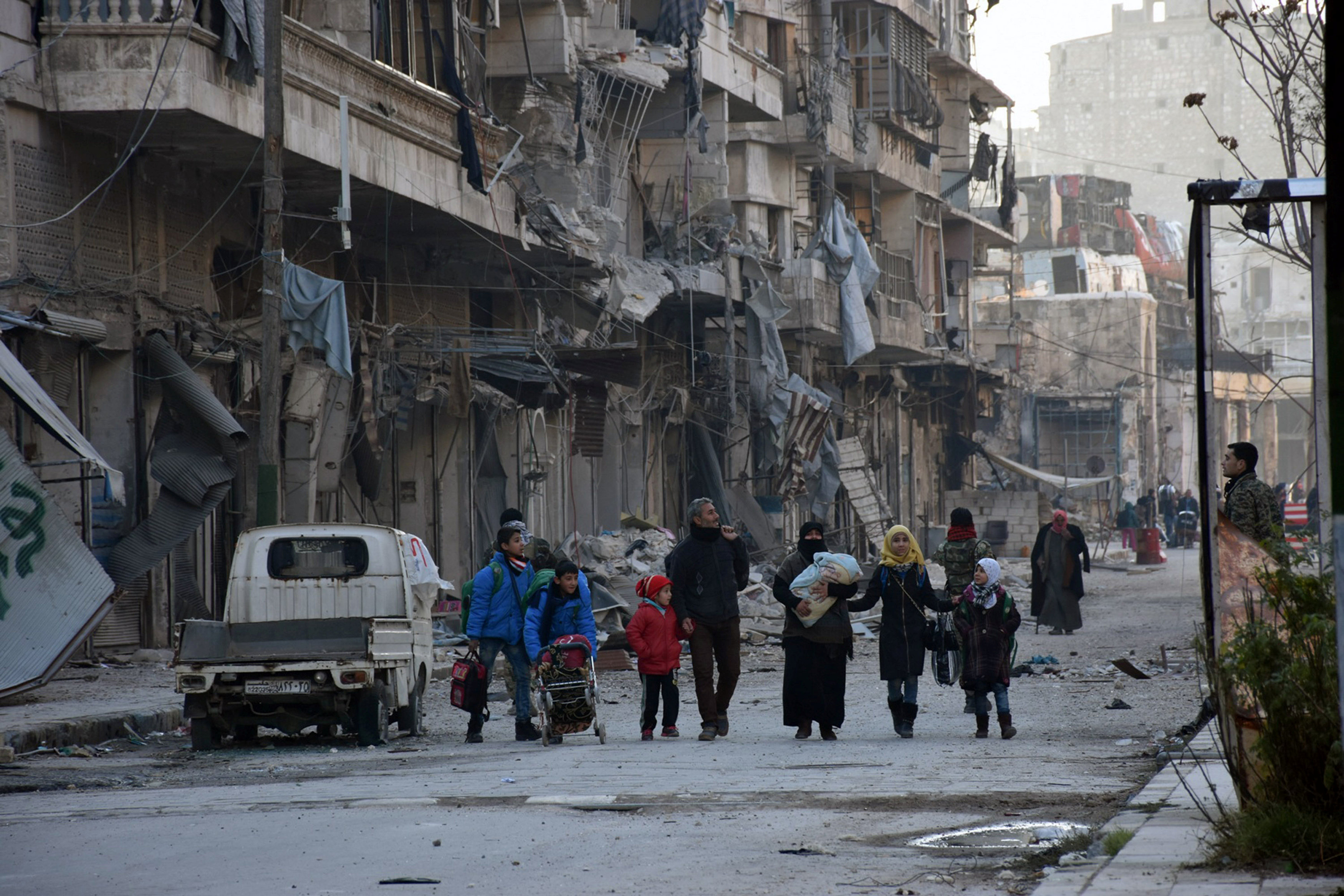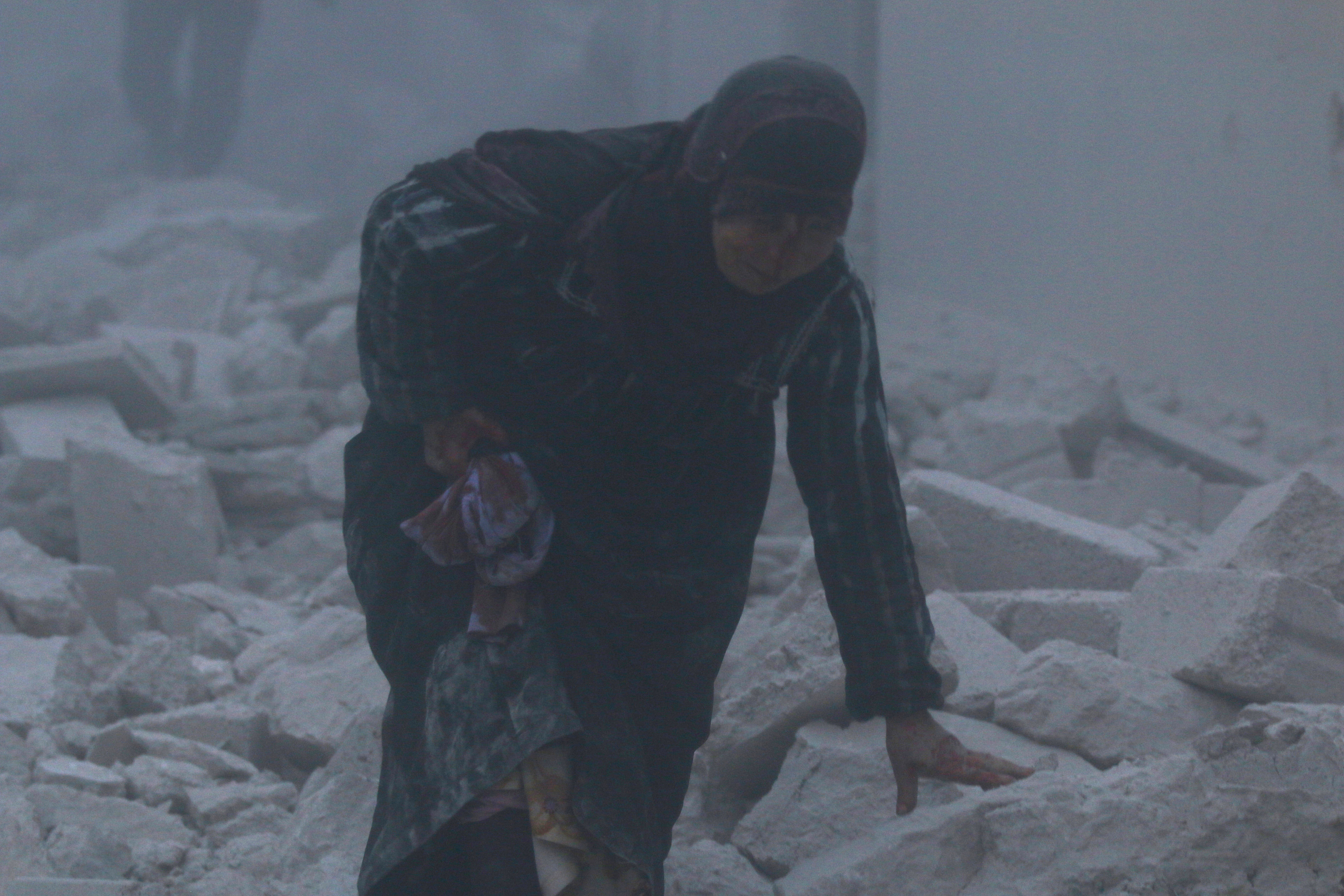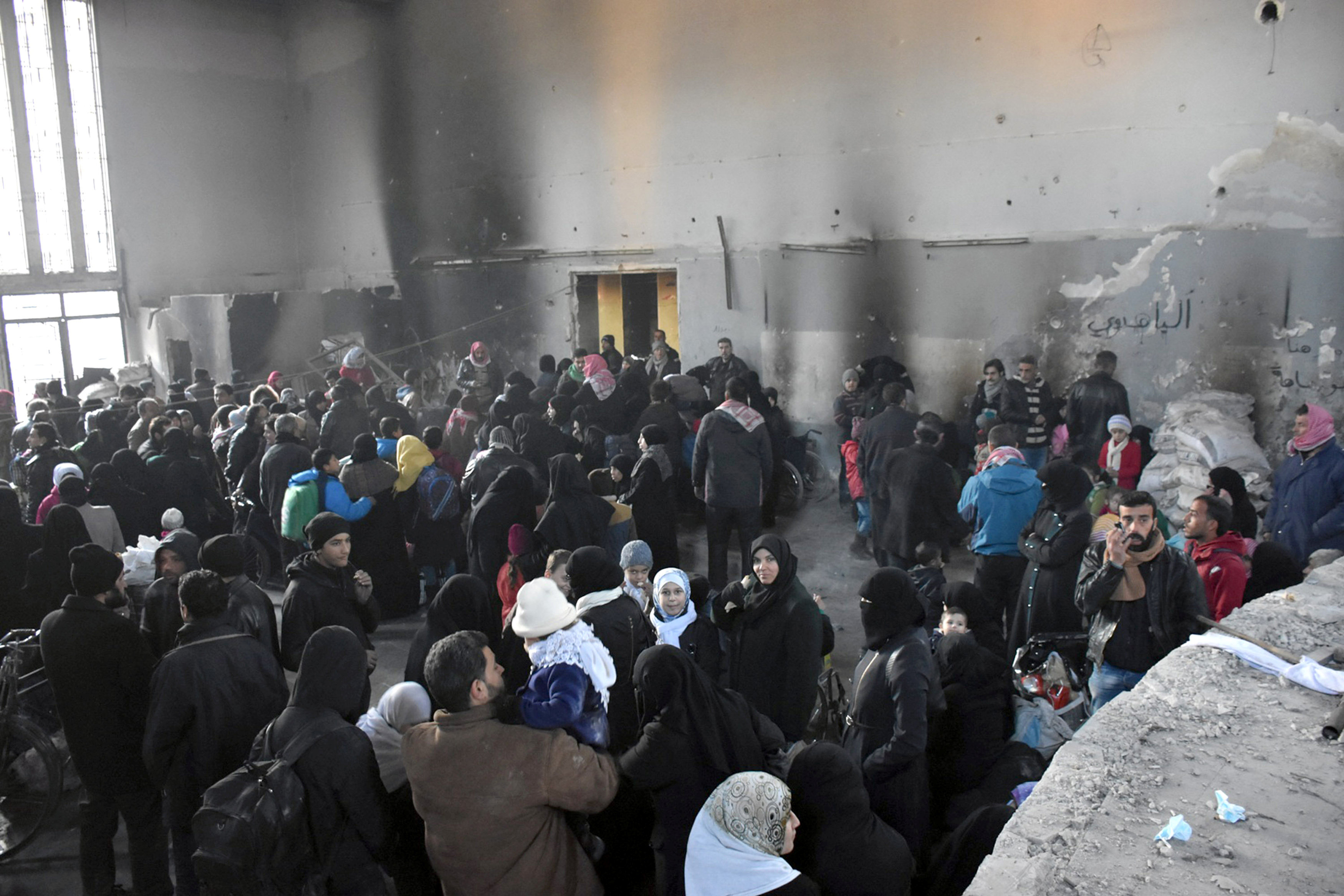
By Lisa Barrington and Tom Perry
BEIRUT (Reuters) – Syrian rebels in besieged eastern Aleppo called on Wednesday for an immediate five-day ceasefire and the evacuation of civilians and wounded, but gave no indication they were ready to withdraw as demanded by Damascus and Moscow.
The Syrian army and allied forces have made rapid gains against insurgents in the past two weeks and look closer than ever to restoring full control over Aleppo, Syria’s most populous city before the war, and achieving their most important victory of the conflict now in its sixth year.
In a statement calling for the truce, the rebels made no mention of evacuating the several thousand fighters who are defending an ever shrinking area of eastern Aleppo.
Syria and Russia, which supports Syrian President Bashar al-Assad, have said they want rebels to leave Aleppo and will not consider a ceasefire unless that happens.
“It’s been a tragedy here for a long time, but I’ve never seen this kind of pressure on the city – you can’t rest for even five minutes, the bombardment is constant,” a resident said.
“Any movement in the streets and there is bombardment (on that area) immediately,” said the east Aleppo resident contacted by Reuters, who declined to be identified. Fear gripped the remaining residents as food and water supplies were cut off.
Retaking Aleppo would also be a success for President Vladimir Putin who intervened to save Moscow’s ally in September 2015 with air strikes, and for Shi’ite Iran, whose elite Islamic Republic Guard Corps has suffered casualties fighting for Assad.
The Syrian government now appears closer to victory than at any point in the five years since protests against Assad evolved into an armed rebellion. The war in Syria has killed hundreds of thousands of people, made more than half of Syrians homeless and created the world’s worst refugee crisis.
Outside of Aleppo, the government and its allies are also putting severe pressure on remaining rebel redoubts.

People, who evacuated the eastern districts of Aleppo, carry their belongings as they arrive in a government held area of Aleppo, Syria, in this handout picture provided by SANA on December 7, 2016. SANA/Handout via REUTERS
“The decision to liberate all of Syria is taken and Aleppo is part of it,” Assad said in a newspaper interview, according to pro-Damascus television station al-Mayadeen. He described the city as the “last hope” of rebels and their backers.
ARMY RETAKES OLD CITY
The Syrian army now controls all of the Old City of Aleppo, a UNESCO World Heritage Site including the Umayyad Mosque, which had been held by rebels, the Observatory said.
Explosions and artillery fire could be heard on Syrian state television in districts around the citadel which overlooks the Old City as the army pressed its offensive. More neighborhoods were expected to fall but rebels were fighting ferociously.
Syrian state news agency SANA said rebel shelling killed 12 people in government-held districts of Aleppo.
Rebels have lost control of about 75 percent of their territory in eastern Aleppo in under 10 days, Director of the Syrian Observatory for Human Rights, Rami Abdulrahman, said.
The “humanitarian initiative” published by rebels called for the evacuation of around 500 critical medical cases.
The Kremlin said on Wednesday that a potential U.S.-Russia deal to allow Syrian rebels to leave Aleppo safely was still on the agenda.
Damascus and Moscow have been calling on rebels to withdraw from the city, disarm and accept safe passage out, a procedure that has been carried out in other areas where rebels abandoned besieged territory in recent months.
Secretary of State John Kerry met with Russian Foreign Minister Sergei Lavrov in Hamburg on Wednesday.
A statement from State Department spokesman John Kirby said the two had “discussed ongoing multilateral efforts to achieve a cessation of hostilities in Aleppo, as well as the delivery of humanitarian aid” to civilians there.
Kerry told reporters after the meeting that he and Lavrov would “connect” on Thursday morning.
There was no further detail on the discussions, but State Department spokesman Mark Toner said in a news briefing on Wednesday that Kerry and Lavrov were discussing proposals to halt fighting in Aleppo, which could include either safe passage out of Aleppo for opposition forces, or a pause in fighting so that humanitarian aid could be delivered.

An injured woman walks at a site hit by an airstrike in the rebel-held al-Ansari neighbourhood of Aleppo, Syria December 7, 2016. REUTERS/Abdalrhman Ismail
“STRATEGIC VICTORY”
Russia and China vetoed a U.N. Security Council resolution on Monday calling for a week-long ceasefire. Moscow said rebels used such pauses in the past to reinforce.
The Syrian army’s advance is a “strategic victory” that will prevent foreign intervention and alter the political process, Reconciliation Minister Ali Haidar told reporters in Damascus.
“Those who believed in the Syrian triumph, know that (the rebels’) morale is at its lowest and that these collapses that have begun are like domino tiles,” he said.
An official with an Aleppo rebel group, who declined to be named, told Reuters the United States appeared to have no position on the Syrian army assault on Aleppo, just weeks before U.S. President-elect Donald Trump takes office.
“The Russians want the fighters out and they (the Americans) are ready to coordinate over that”, said the Turkey-based official, citing indirect contacts with U.S. officials.
While rebels say they could fend off the offensive for some time to come, the fighting is complicated by tens of thousands of fearful civilians trapped in the rebel-held area, many of them related to the fighters, the official said.
“The civilian burden is very heavy, in a small area.”
“HEART-BREAKING”
As winter sets in, siege conditions are increasingly desperate, exacerbated by increasing numbers of displaced residents and food and water shortages.
A U.N. official said on Wednesday about 31,500 people from east Aleppo have been displaced around the entire city over the past week, with hundreds more seen on the move on Wednesday.
With hospitals, clinics, water and food cut off, U.N. chief Ban Ki-moon said the situation was “heart-breaking.”
Very few rebels had quit Aleppo so far, said Kremlin spokesman Dmitry Peskov, who described those who were left there as “terrorists” who were uniting around fighters from the group formerly known as the al-Qaeda-linked Nusra Front.

People, who evacuated the eastern districts of Aleppo, carry their belongings as they gather in a government held area of Aleppo, Syria, in this handout picture provided by SANA on December 7, 2016. SANA/Handout via REUTERS
But eastern Aleppo is widely seen by analysts of the Syria conflict as a bastion of the moderate opposition to Assad, which has maintained that jihadists have little presence in the city.
Civilians wanting to leave east Aleppo should be evacuated to the northern Aleppo countryside, rather than Idlib province, the rebel document said. Idlib is dominated by Islamist groups including Fateh al-Sham, the group formerly known as the Nusra Front, and is facing intense bombardment by Russian warplanes.
“Russia wants to move them to Idlib. The fighters have a choice: survive for an extra couple of weeks by going to Idlib or fight to the very end and die in Aleppo,” one senior European diplomat, who declined to be named, said. “For the Russians it’s simple. Place them all in Idlib and then they have all their rotten eggs in one basket.”
On Russian-U.S. talks, the diplomat said: “The assumption is that the U.S. has influence on the ground. I don’t think that’s the case.”
(Reporting by Lisa Barrington, Ellen Francis, Tom Perry, John Davison, Andrew Osborn, Tom Miles, John Irish and Yeganeh Torbati; Editing by Philippa Fletcher and James Dalgleish)



